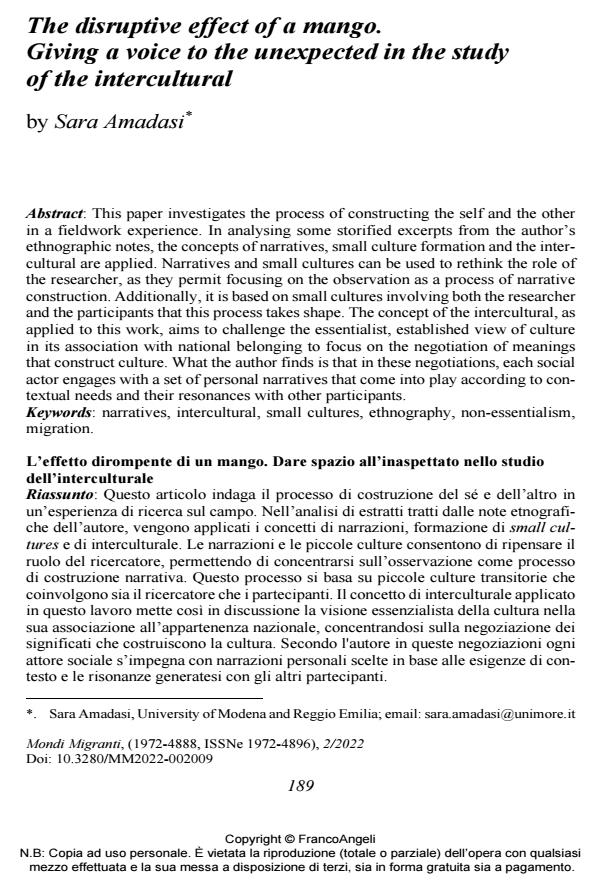The disruptive effect of a mango. Giving a voice to the unexpected in the study of the intercultural
Journal title MONDI MIGRANTI
Author/s Sara Amadasi
Publishing Year 2022 Issue 2022/2
Language English Pages 15 P. 189-203 File size 168 KB
DOI 10.3280/MM2022-002009
DOI is like a bar code for intellectual property: to have more infomation
click here
Below, you can see the article first page
If you want to buy this article in PDF format, you can do it, following the instructions to buy download credits

FrancoAngeli is member of Publishers International Linking Association, Inc (PILA), a not-for-profit association which run the CrossRef service enabling links to and from online scholarly content.
This paper investigates the process of constructing the self and the other in a field-work experience. In analysing some storified excerpts from the author’s ethno-graphic notes, the concepts of narratives, small culture formation and the intercul-tural are applied. Narratives and small cultures can be used to rethink the role of the researcher, as they permit focusing on the observation as a process of narrative construction. Additionally, it is based on small cultures involving both the re-searcher and the participants that this process takes shape. The concept of the in-tercultural, as applied to this work, aims to challenge the essentialist, established view of culture in its association with national belonging to focus on the negotia-tion of meanings that construct culture. What the author finds is that in these ne-gotiations, each social actor engages with a set of personal narratives that come into play according to contextual needs and their resonances with other participants.
Keywords: narratives, intercultural, small cultures, ethnography, non-essentialism, migration
Sara Amadasi, The disruptive effect of a mango. Giving a voice to the unexpected in the study of the intercultural in "MONDI MIGRANTI" 2/2022, pp 189-203, DOI: 10.3280/MM2022-002009